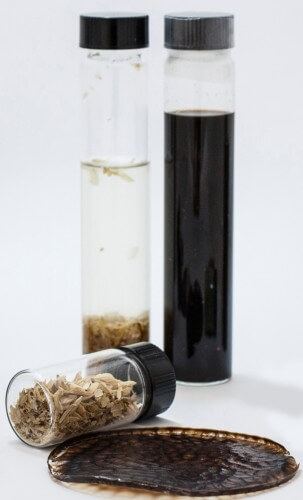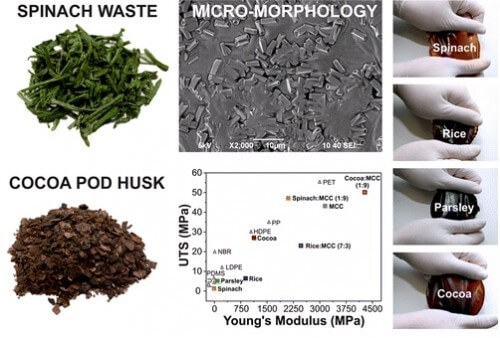Our chairs, synthetic carpets and plastic bags could one day be produced from the waste of cocoa, rice and other vegetables, instead of from oil - so scientists report. The innovative process they are developing to convert agricultural waste into biodegradable plastic could help the world with the problems associated with plastic and agricultural waste.

[Translation by Dr. Nachmani Moshe]
Our chairs, synthetic carpets and plastic bags could one day be produced from the waste of cocoa, rice and other vegetables, instead of from oil - so scientists report. The innovative process they are developing could help the world with problems involving plastic and agricultural waste. The research findings were published in the scientific journal Macromolecules (abstract of the article).
Researchers from the Italian Institute of Technology point out that the popularity of plastic products is growing. In 2012, the production of plastic reached a rate of 288 million tons worldwide, however, the use of this material has a price - synthetic plastic materials survive for hundreds of thousands of years while emitting substances that are toxic to the environment and even harmful to public health. In addition, plastic is made from petroleum, which is a non-renewable source. The transition to bio-plastics, which is more environmentally friendly, turned out to be challenging and expensive. The team of researchers wanted to find a simpler and more economical method to achieve this transition.
The researchers relied on an organic acid found in nature capable of breaking down cellulose (trifluoroacetic acid, TFA), which is the main building block of plants, and which is also the most common polymer in nature. They mixed the acid with stalks of parsley and spinach and with the husks of rice kernels and cocoa pods. Next, they poured the resulting solutions into laboratory dishes.
The fibers obtained from these solutions presented a promising range of properties, from brittleness, to hardness, to softness and flexibility - similar to commercial plastic materials. "Our method opens a window for opportunities to replace some of the non-renewable polymers with these bio-plastics obtained from agricultural waste," the researcher points out.

The original knowledge
